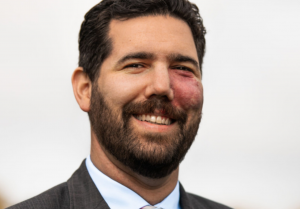NO STOPPING LEGAL CANNABIS FROM COMING TO NEW YORK

This time, there is no stopping legal cannabis from coming to New York. Undoubtedly legalization will be less harmful to New Yorkers than prohibition, but the specifics matter in a decision of this magnitude. As an American who has studied cannabis policy for 15 years and now works in Canada where we have legalized cannabis, I’m sharing some lessons learned in the hopes that New York will get it right.
Three main areas must be addressed for the legalization of cannabis to succeed. First, you must build a system based on public health principles. Second, you must ensure frequent cannabis consumers engage with the new system. Finally, you must ensure you use the proceeds from legal cannabis to start repairing the harms that a century of prohibition has brought, particularly to communities of color.
Cannabis is a minimally harmful drug, but not harmless, and the regulations guiding legalization need to acknowledge the actual level of harm. Overdo things to look like you’re tough on drugs and you’ll undercut the whole premise. In Canada, simple steps like the use of plain packaging, strict limits on advertising, and a robust testing and compliance mechanism mean consumers get a safe product without the advertising that might drive up consumption. Following legalization in Canada we have seen minimal increases in reported use, mostly among the over 25 crowd; among 15-17 year olds use has dropped almost in half.
Concerns about driving while high dominate discussions of cannabis legalization. A public health approach acknowledging the harms of drugged driving while not stigmatizing all cannabis use is a difficult but not impossible line to walk. Many organizations cite increased detection of cannabis in accident victims after legalization, but it should be noted that cannabis sticks around for up to a month after consumption so that is not a reliable indicator of impairment. Setting draconian penalties or zero tolerance limits won’t make New York any safer. Public health messaging that shapes practices has helped reduce alcohol related motor vehicle accidents and can do the same with cannabis. We’ve taken this approach in Canada and have seen no increase in the number of individuals who reported driving within two hours of any consumption of cannabis — in fact we’ve seen young people report they are now considerably less likely to get into the car with someone who has consumed cannabis in the last two hours.
Frequent cannabis users make up a small percentage of overall users, but they buy the bulk of products. Build a system where they feel stigmatized and excluded and they’ll stick with their dealers. This means you’ll lose their tax revenue, miss engaging them with public health information, and allow the illicit market to continue. After a year of legalization only 45% of Canadians lived within six miles of a cannabis outlet, and in combination with high initial prices the legal market struggled to capture frequent consumers. Thankfully as the number of outlets has grown and the price has dropped, consumers are heading to legal outlets. In fact, legal cannabis sales recently surpassed the estimated illicit market, an important marker of shifting purchasing habits.
Finally, it is imperative specific measures are put in place to repair the harms caused by prohibition. In the last 20 years, there have been over 800,000 arrests in New York for cannabis despite decriminalization being on the books since 1977. Each of those arrests have not only harmed community trust in the criminal justice system, but harmed individuals who have lost employment and housing opportunities. The disproportionate nature of cannabis enforcement has created deep and lasting scars in communities of color that must be addressed in a legalized system.
New York has an immense opportunity to build an economically beneficial, safe and just legal cannabis system, but it will require legislators break with past stigmas and fears of being seen as soft on drugs. A system built only to avoid offending those who dislike cannabis will not have the buy-in of cannabis consumers and will not possess the finely balanced public health options necessary to ensure safety without stymieing accessibility. Good luck, neighbors.
Daniel Bear is a drugs policy researcher and Professor on the Criminal Justice degree at Humber College in Toronto, Canada.
